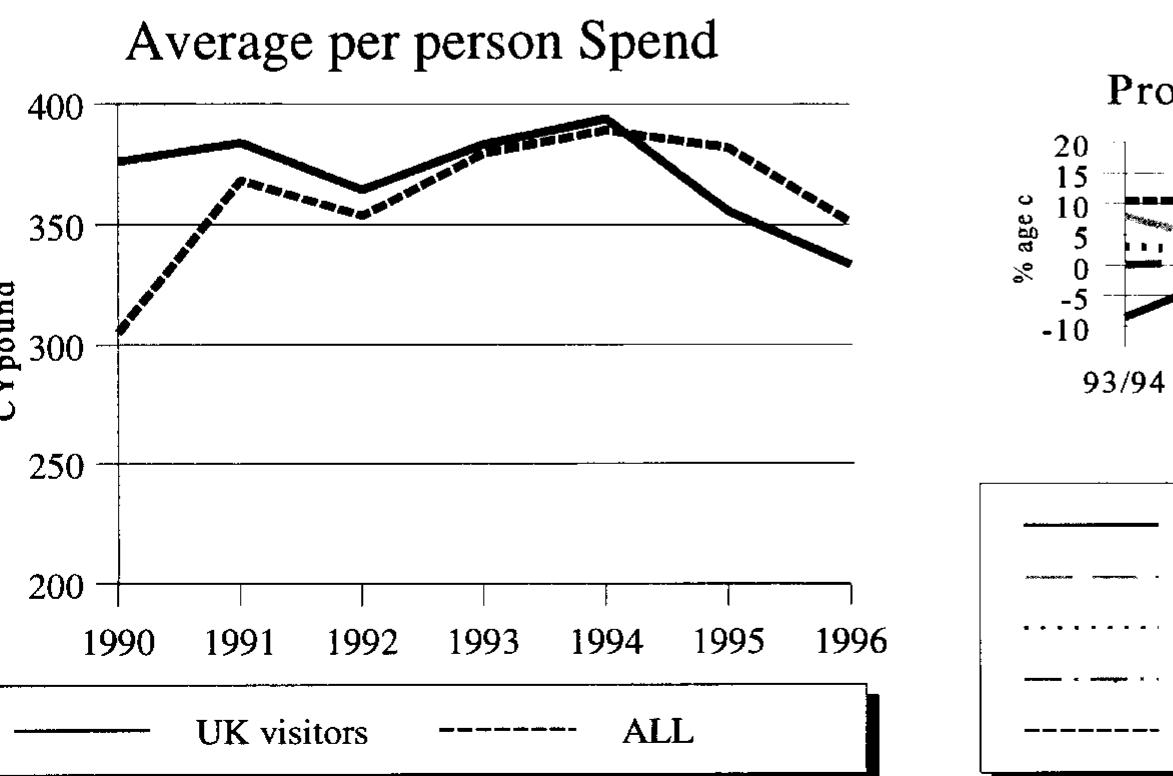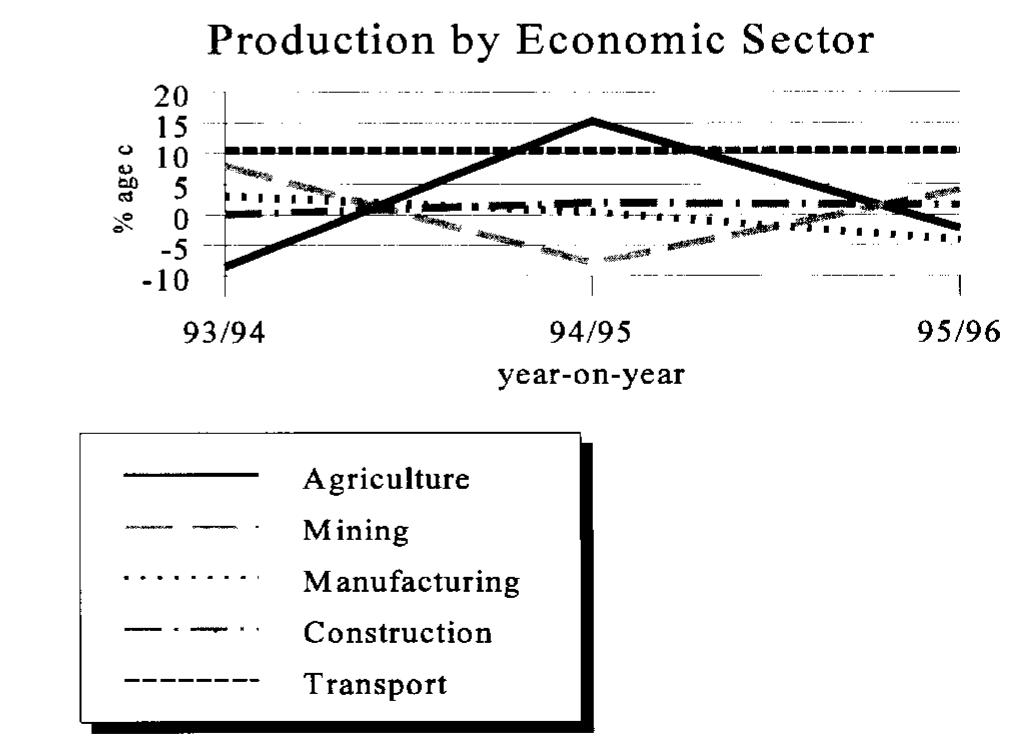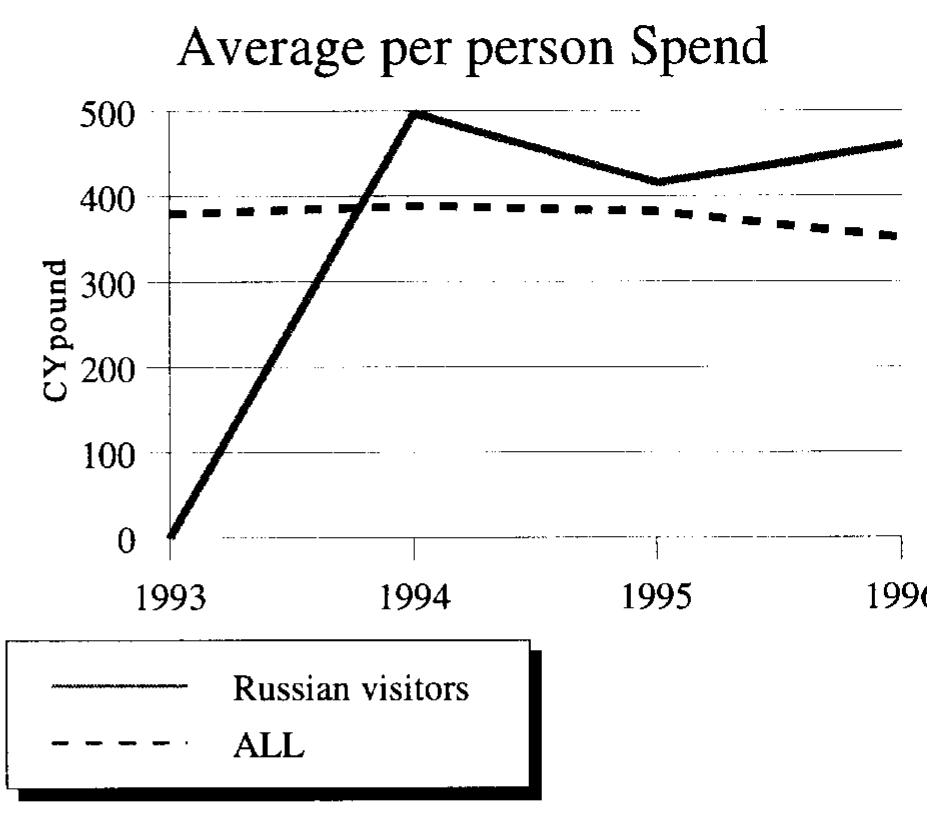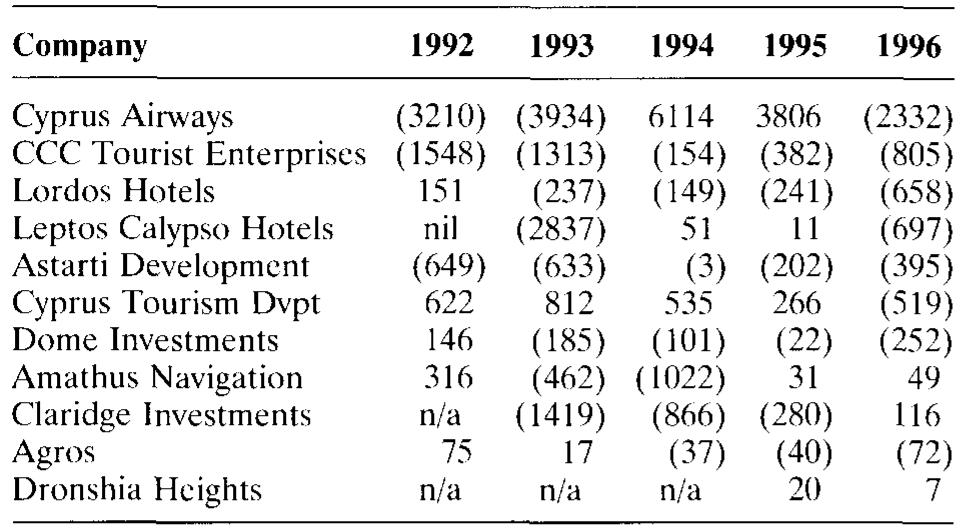The impact of political instability on a fragile tourism product (original) (raw)
Abstract
Turkey who rely upon tourism to contribute to their economies. Downturns in these economies can only exacerbate the problems in a vicious circle. The reader is introduced to the more recent causes and the threats occurring in the area.
Figures (5)
Figure 1 Tourism growth (Republic of Cyprus).
Figure 2 Average per person spend (UK visitor). The reaction to the loss of the UK market has been to look to increasing the number of tourist arrivals from Eastern Europe. Numbers of arrivals have increased significantly since 1994 when they were so small as to register ‘insignificant’; in 1995 they were 97400 and 1996 were nearly 125000." The current visitors from Eastern Europe show a much higher per capita spend than any other visitor
Figure 4 Economic sector indicators (Republic of Cyprus). group to the island (Figure 3) and they have provided a boost to the tourism industry, but there are signs that parts of the economy are feeling the effects of a slowing in total numbers of visitors. Some sectors, such as agriculture, mining and manufacture, show volatile percentage changes with disruptive consequences to the economy (Figure 4). In the construction sector, authorized building permits, whic tion activity, h give an indication of future construc- are known to be significantly down!' although over the previous 3 year period the number of available from 76000 1996, with a tion.'? Such the tourism icensed (tourism) beds had increased (1994), to 78000 (1995) to 84500 in urther 2860 under still under construc- a building programme did not reflect demand pattern and with a similar growth in un icensed accommodation for which little central control is exercised, excess bed capacity became inevitable. Falling occupancy rates and pressures on prices are making hotels and other
Figure 3 Average per person spend (Russian visitor). The impact of political instability on a fragile tourism product: M A Clements and A Georgiou
Values are shown in 000 Cypriot pounds — negative values are given in parentheses. Table 1

Loading Preview
Sorry, preview is currently unavailable. You can download the paper by clicking the button above.
References (26)
- Omer Akbel Turkish Foreign Ministry reported by the Macedonian Press Agency. 17 January 1997.
- Cumhuriyet (newspaper) 23 March 1997, p. 5 and (TRNC) Bavrak Radio 24 March 1997.
- R. Denktesh inKibris (newspaper) 17 June 1997, p. 1.
- Sources: CTO Statistics and A. Andronikou, Development o/' Tourism in Cyprus. Harmonization of Tourism with the Environment, Cosmos Ltd, Cyprus 1986, p. 23.
- The Tourist lndustry in Cyprus, Bank of Cyprus Bulletin, No. 1, 1996, p. 2.
- The Tourist Industry in Cyprus Bank of Cyprus Bulletin, No. 1, 1996, p. 7.
- G. C. Michaelides, Tourists: They've changed and so must wc Hermes International, Winter 1996/97, p. 12.
- 'Greek Islands lose out', Daily Mail, 5 October 1996, p. 56: Lunn Poly estimates that some 1 million holidays abroad, representing 10% of the total, were lost between 1995 and 1996; major gainers included Turkey and major losers included the Greek Islands and Cyprus.
- N. Josephides, The l&lue q/' the British Tourist, Conference held in Limassol, 5 July 1996.
- Tire Tourist Industry in Oprus, Bank of Cyprus Bulletin, No. 1, 1996, p. 16.
- J. Christou, Hotels face cash crisis with debt of millions to banks, ()prus Mail, 23 February 1997, p. 5.
- A. Martin, Never too late: Why action plan must be just that, Hermes International, Autumn 1996.
- Sources: Qvpms Financial Min'or, 15 August 1993, p. 9; C)'prus Financial Mirror, 23 February 1994, p. 11; C)7~ms Financial Mirlvr, 15 February 1995, p. 21; Cyprus Financial Mirror, 11 October 1995, p. 10; C)7~rus Financial Mirror', 5 November 1996, p. 33; Cyprus Financial Mirror, 24 January 1997, p. 33; Cyprus Financial Mirror, 18 June 1997, p. 23.
- Op tit, G. C. Michaelides.
- T. Anastasiadcs, Added Value the key to a quality future Hermes International, Winter 1995/96, p. 10.
- A. Skyrianidcs, The view from the pines of Platrcs, C)7,'us Mail. 16 February 1997, p. 4.
- J. Christou, Newest hotels have the worst cash problems, Cyprus Mail, 23 February, 1997, p. 8.
- Op tit, Z. Ioannides.
- 1. S. Savvides, Competitiveness: The missing factor in the development of tourism in Cyprus, Accountan O, C)prus, Vol. 45, December 1996, p. 5.
- The UNFICYP is the longest UN peace operation, estab- lished in 1964; a 1200 force patrols the 180 km buffer zone known as the Green Line.
- Taken from the text of a speech delivered by Richard Holbrooke, US Presidential Emissary, to the world press in Nicosia, 12 June 1997. Richard Holbrooke is responsible for bringing the two communities to the negotiating table planned in New York early July 1997.
- Kibris, 1"8 June 1997, p. 1.
- Kibris, 3 February 1997, p. 1.
- S. Denktash (Deputy Prime Minister, TRNC) commenting in the Turkish Daily News, 4 July 1997.
- Kibris, 17 June 1997, p. 3.
- B. Jones, Spain gears up for tourists, Europe, No. 378, July/ August 1996, pp. 39-40.




